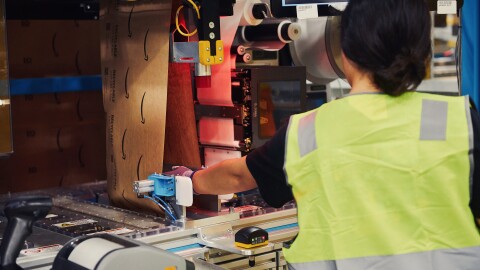The U.N. Intergovernmental Panel on Climate Change recently reported unprecedented changes in Earth’s climate. To help the public and private sectors better predict and prepare for the effects of a changing climate, we need vast amounts of data and sophisticated computing resources at scale.
Our collaboration with SilverLining’s Safe Climate Research Initiative helps confront the urgent need for infrastructure to support and advance climate research. This program will enable SilverLining and NCAR to implement one of the most sophisticated and valuable global climate simulation models by using advanced AWS technologies. Using cloud-based technology and hosting the resulting datasets in the AWS Open Data Sponsorship Program will open a powerful new avenue to accelerating climate research and democratizing access to tools and information that will help protect our planet.
The power of working together for good
The Amazon Sustainability Data Initiative (ASDI) is donating AWS cloud resources, technical support, and early access to its next-generation high performance computing solutions to support simulations of near-term climate using NCAR’s Community Earth System Model Version 2 and its Whole Atmosphere Community Climate Model, which are among the most sophisticated climate and atmospheric models in the world. The simulation work will demonstrate the need and value of using cloud infrastructures to advance climate models in support of robust scientific studies by researchers everywhere.
NCAR will run an ensemble of 30 model simulations of the Earth system over the period from 2022-2070—what is considered “near term,”—under a median scenario for warming and with simulations that include the distribution of particles in the stratosphere to counter warming, a pioneering area of research called “solar climate intervention.” The model simulations will be replicated by the UK Meteorological Office, initially in their closed environment, and related simulations will be performed using NASA’s Geographic Information System model. The resulting datasets will be hosted on AWS with open access to researchers around the world.
The effort includes research teams from Cornell University, Rutgers University, Colorado State University, the University of Washington, the Bangladesh Centre for Advanced Studies, the University of Cape Town, the University of Nairobi, the University of the Philippines, and other institutions, through a program administered by the Solar Radiation Management Governance Initiative and UNESCO.
These research teams will use the simulation data to study impacts on Earth and human systems—including agriculture, drought, flooding, and human health—in various parts of the world. These studies will advance understanding of near-term climate and climate-intervention responses, break ground on the use of cloud technology and services for this type of research, and accelerate progress on a time-sensitive problem for humanity.
Programs and collaborations like this are critical to understanding how our planet’s climate is changing and how it will impact communities and business.
Sustainability in the cloud
ASDI was founded with a mission to support innovators and researchers with the data, tools, and technical expertise they need to move sustainability to the next level. ASDI currently works with scientific organizations like NOAA, NASA, the UK Meteorological Office, and the Queensland Government to identify, host, and deploy key datasets on the AWS Cloud, including weather observations and forecasts, climate projection data, satellite imagery, hydrological data, air quality data, and ocean forecast data. A study by 451 Research has also found that AWS's infrastructure is 3.6 times more energy efficient than the median U.S. enterprise data center surveyed. Along with our use of renewable energy, these factors enable AWS to do the same tasks as traditional data centers with an 88% lower carbon footprint.
For more information about sustainability at Amazon, visit sustainability.aboutamazon.com












